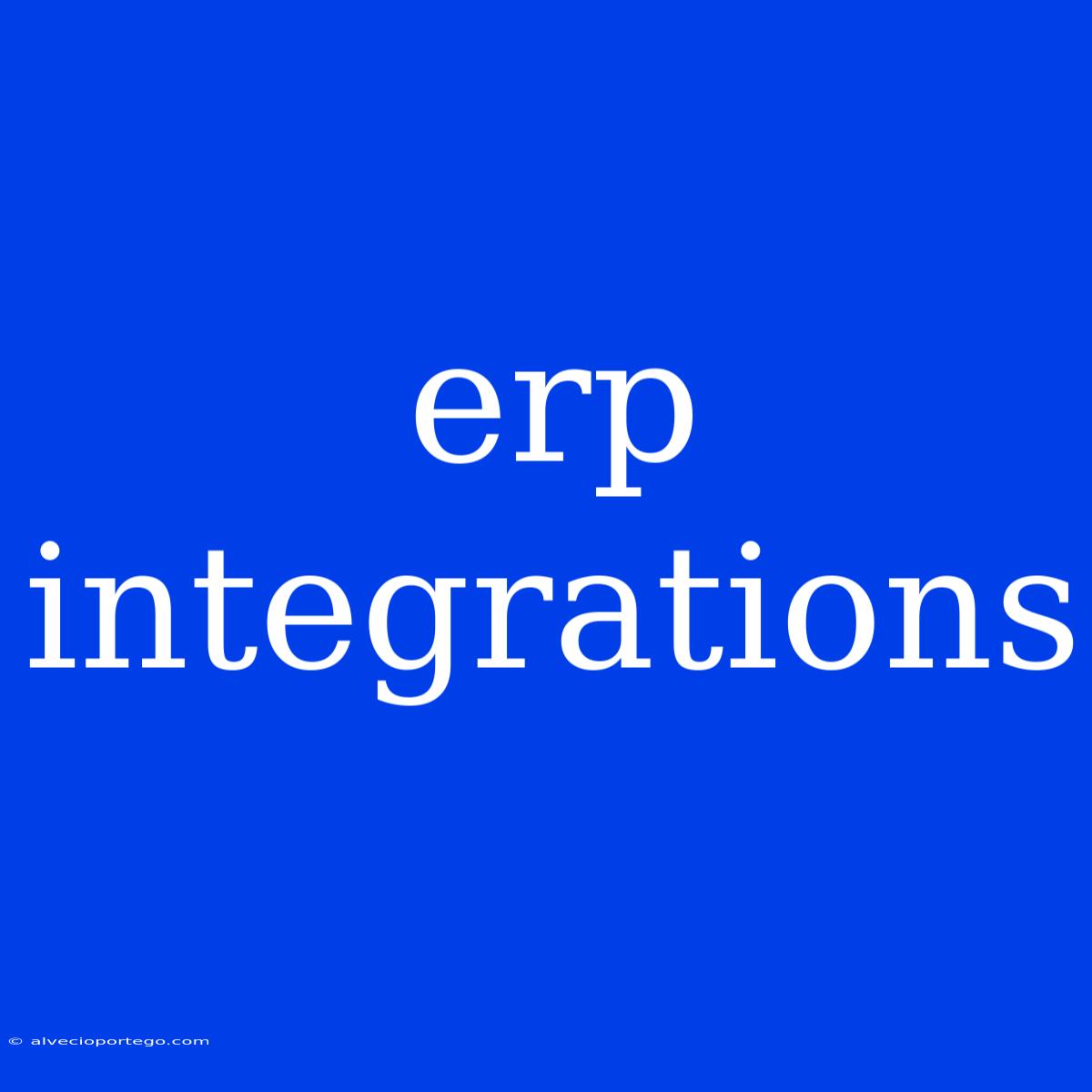ERP Integrations: Streamlining Your Business Operations
Enterprise Resource Planning (ERP) systems are the backbone of many modern businesses, managing critical functions like accounting, inventory, sales, and customer relations. However, their true potential is unlocked when they seamlessly integrate with other essential tools and platforms. This is where ERP integrations come in, bridging the gap between different software systems and enabling businesses to operate with greater efficiency and agility.
The Benefits of ERP Integrations:
- Improved Data Accuracy: Integrations eliminate manual data entry and duplication, ensuring data consistency across systems. This fosters a single source of truth and minimizes errors.
- Enhanced Workflow Automation: Automating repetitive tasks and processes across different systems saves valuable time and resources, freeing up employees for more strategic work.
- Increased Visibility and Transparency: Integrations offer real-time insights into business operations, allowing for informed decision-making and proactive problem-solving.
- Streamlined Collaboration: Integrations facilitate seamless information sharing between different departments, improving collaboration and communication within the organization.
- Greater Flexibility and Scalability: ERP integrations allow businesses to adapt to evolving needs and scale their operations with ease, without compromising functionality or data integrity.
Common ERP Integration Scenarios:
- E-commerce platforms: Integrating your ERP with platforms like Shopify, Magento, or WooCommerce allows for seamless order management, inventory synchronization, and automated fulfillment processes.
- Customer Relationship Management (CRM) systems: Integrating your ERP with Salesforce, HubSpot, or Microsoft Dynamics 365 enhances customer interaction, sales pipeline management, and customer service operations.
- Accounting software: Linking your ERP with QuickBooks, Xero, or Sage improves accounting accuracy, streamlines financial reporting, and facilitates automated invoice processing.
- Marketing automation platforms: Integrating with Mailchimp, Marketo, or Pardot enables targeted marketing campaigns based on customer data from your ERP system.
- Business intelligence (BI) tools: Integrating your ERP with Power BI, Tableau, or Qlik Sense provides powerful data visualization and analytics capabilities, allowing for data-driven decision making.
Choosing the Right Integration Solution:
Selecting the appropriate integration solution is crucial for achieving desired results. Consider factors such as:
- Your specific business needs and goals.
- The compatibility of your ERP system with other platforms.
- The complexity of the integration process and required technical expertise.
- The costs involved, including initial setup, ongoing maintenance, and potential licensing fees.
Conclusion:
ERP integrations offer a powerful way to optimize business operations, improve efficiency, and unlock the true potential of your ERP system. By seamlessly connecting different software platforms, businesses can streamline workflows, enhance data accuracy, and gain deeper insights into their operations, enabling them to stay ahead in today's competitive landscape.

